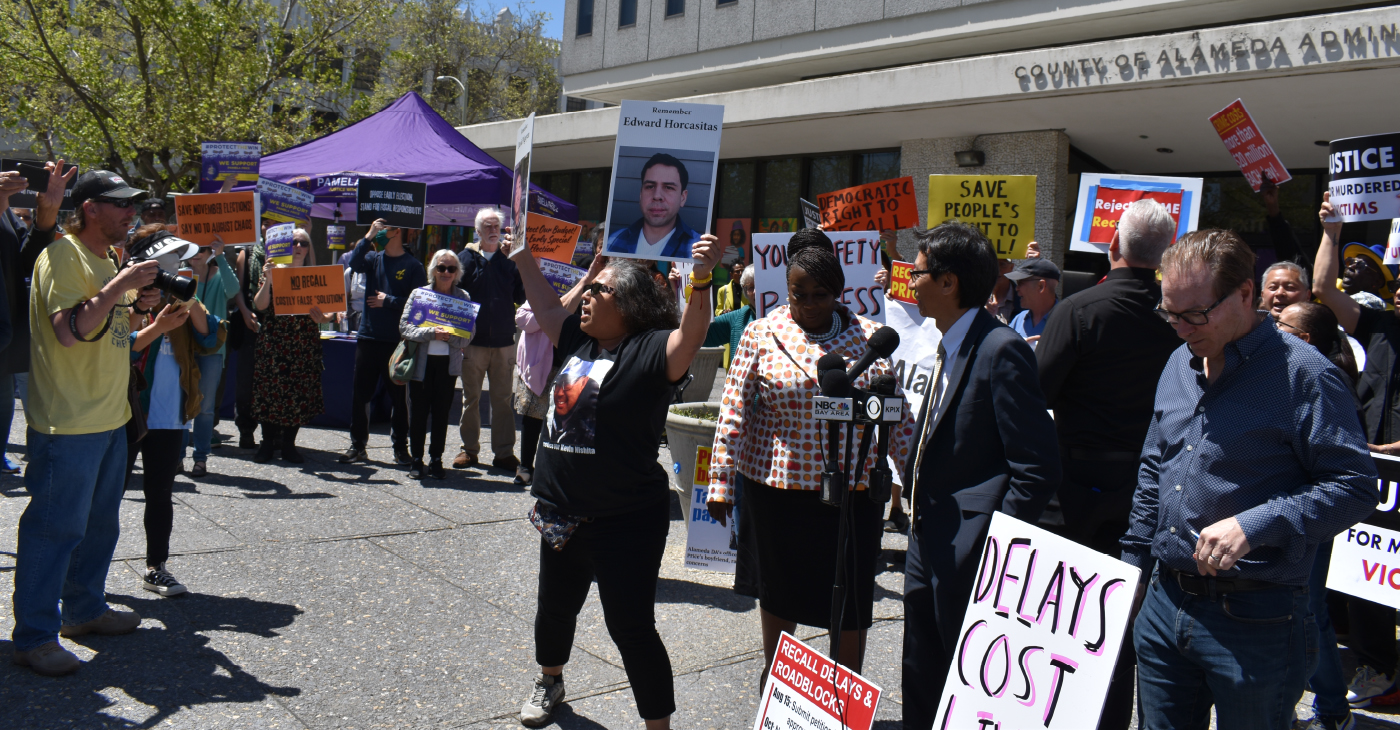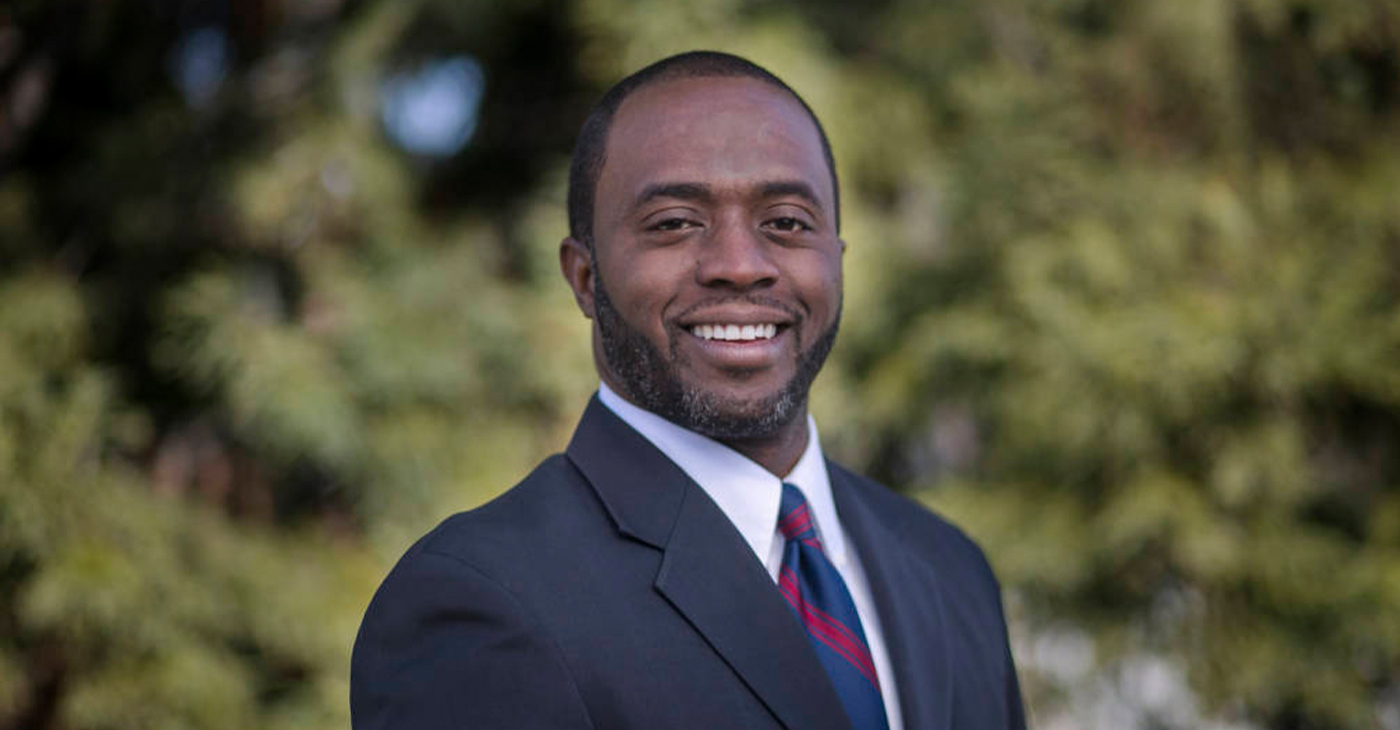Oakland Post
The Hypocrisy of “American Democracy”
This is the hypocrisy of “American democracy”: America the settler-colonial power that wrote oppression and enslavement into its founding documents; America, lecturer to the world about respecting elections and the peaceful transfer of power only when it suits its “interests.”
“In a democracy, force should never seek to overrule the will of the people or attempt to erase the outcome of a credible election.” President Joe Biden – Feb 1, 2021
In response to the military coup in Myanmar, President Biden said, “For almost a decade, the people of Burma have been steadily working to establish elections, civilian governance, and the peaceful transfer of power. That progress should be respected.”
Why, in 2021 is an American president still using the imperialist reference of Burma when discussing Myanmar? If Biden is so supportive of democracy in Myanmar, why is the move towards democracy in Venezuela, Haiti, Bolivia, and recently in Ukraine being undermined?
This is the hypocrisy of “American democracy”: America the settler-colonial power that wrote oppression and enslavement into its founding documents; America, lecturer to the world about respecting elections and the peaceful transfer of power only when it suits its “interests.”
It is admirable rhetoric that rings empty and hollow.
In Haiti, thousands are protesting in the streets in response to the U.S.-backed dictator President Jovenel Moïse governing beyond his term limit. He is trying to rewrite the Haitian constitution to grant himself greater power and immunity for any actions that he takes in office. Moïse’s draft of the constitution was released to the people only in French. The vast majority of Haitians read Creole, not French. Why would the US support such undemocratic actions?
On March 31, Ms. Julie Chung, Assistant to U.S. Secretary of State for Hemispheric Affairs, tweeted, “The United States…is helping the Haitian people prepare for elections by providing technical support …strengthening political parties and NGOs, and increasing women’s participation in Haitian politics.”
History tells us that this “help” only benefits the elite and the interests of the U.S.
The Biden administration continues to foment American foreign policy that backs murderous and repressive dictators. It falsely claims to be the bastion of democracy or Reagan’s fictional “shining city on a hill.”
The U.S. occupied Haiti from 1915-34. It backed the notorious dictators Francois “Papa Doc” Duvalier and his son Jean Claude “Baby Doc” from 1957 -1986. In 2004, the US overthrew and kidnapped the democratically elected President Jean-Bertrand Aristide.
Why is the US backing Moïse? For over 100 years, the US has backed rigged elections and coups in Haiti. President Biden and members of his administration continue to try and claim the moral high ground and position the US as the international arbiter of democracy and human rights.
Biden’s administration, like those before his, is trying to bludgeon friend and foe alike into submission with enhanced sanction regimes and military intervention.
Contrary to Biden’s claims, true democracy; the organic development of policies and parties, one person one vote, national sovereignty, and the peaceful transfer of power are not values that are encouraged and protected by the US.
The world sees it as empty rhetoric.
As the United States claims to campaign for the protection of human rights around the world by calling out China’s alleged repression of Uighurs and Russia’s alleged and unproven targeting of political dissidents, among other abuses; former President Mandela’s statement that the US is “the greatest threat to world peace” could never be closer to the truth. World leaders recognize that President Biden’s lofty rhetoric is no more than the hypocrisy of “American democracy”.
Dr. Wilmer Leon is the Producer/ Host of the nationally broadcast call-in talk radio program “Inside the Issues with Leon,” on SiriusXM Satellite radio channel 126. © 2021 InfoWave Communications, LLC
Alameda County
Board of Supervisors Accepts Certification of Signatures, Will Schedule Recall Election May 14
The Alameda Board of Supervisors unanimously accepted the certification of the results of the valid signatures submitted for the recall of District Attorney Pamela Price on Tuesday evening. The Board will set the election date at a special meeting on May 14. Before the meeting, recall proponents and opponents held separate press conferences to plead their cases to the Board and residents of Alameda County.

By Magaly Muñoz
The Alameda Board of Supervisors unanimously accepted the certification of the results of the valid signatures submitted for the recall of District Attorney Pamela Price on Tuesday evening. The Board will set the election date at a special meeting on May 14.
Before the meeting, recall proponents and opponents held separate press conferences to plead their cases to the Board and residents of Alameda County.
Price, who up until this point has made little public comment about the recall, held her press conference in Jack London to announce that the California Fair Political Practices Commission has opened an investigation into the finances of the Save Alameda For Everyone (SAFE) recall campaign.
The political action committee (PAC), Reviving the Bay Area, has been the largest contributor to the SAFE organization and has allegedly donated over half a million dollars to the recall efforts.
“Between September 2023 and November 2023, [Revive the Bay Area] donated approximately $578,000 to SAFE without complying with the laws that govern all political committees in California,” Price said.
Price accused the recall campaigns of using irregular signature-gathering processes, such as paying gatherers per signature, and using misleading information to get people to sign their petitions.
SAFE held their own press conference outside of the Alameda County Administration Building at 1221 Oak St. in Oakland, once again calling for the Board to certify their signatures and set a date for the recall election.
Their press conference turned contentious quickly as Price’s “Protect the Win” supporters attempted to yell over the SAFE staff and volunteers. “Stop scapegoating Price” and “Recall Price” chants went on for several moments at a time during this event.
Families of victims urged the Board to think of their loved ones whose lives are worth much more than the millions of dollars that many opponents of the recall say is too much to spend on a special election.
The Registrar of Voters (ROV) estimates the special election could cost anywhere from $15 to $20 million, an amount that is not in their budget.
The Board was presented with several options on when and how to conduct the recall election. They have to set a date no less than 88 days or more than 125 days after May 14, meaning the date could fall anywhere from late July to September.
But the County charter also states that if a general election takes place within 180 days of their scheduling deadline, the Board could choose to use the November ballot as a way to consolidate the two events.
In the event that Price is recalled, the Supervisors would appoint someone to fill the vacancy, though neither the County nor the California charter specifies how long they would have to pick a replacement.
The appointee would serve as district attorney spot until the next election in 2026. Afterwards, either they, if they run and win, or a newly elected candidate would serve the rest of Price’s six-year term until 2029. Price is unique as the only district attorney wo serves a term of six years.
The Board acknowledged that they knew last fall that this recall would come with its own set of complications when Measure B, which changed the local recall charter to match California’s, was first brought to their consideration.
Supervisors Nate Miley and David Haubert opposed discussing the measure, stating that the public would think that the Board was attempting to influence the recall campaign that had already taken off months prior.
“I think ultimately this feels like it’s going to end up in court, one way or the other, depending on who files what,” Haubert said.
Price’s legal team told the Post that the district attorney intended to consider all legal options should the recall election take place.
Miley stated that while he was in support of the amendment to the charter, he did not think it was right to schedule it for the March ballot as it would ultimately cause confusion for everyone involved.
“It has produced some legal entanglements that I think, potentially, could’ve been avoided,” Miley said.
Antonio Ray Harvey
Working Group: More Entry-Level Homes Could Help Solve Housing Crisis
The Community Housing Working Group hosted a briefing on April 23 at Cafeteria 15L in Sacramento. Discussions focused on how the housing crisis in California affects Black and Brown communities and explored ways to provide low-income families and individuals with affordable housing.

By Antonio Ray Harvey, California Black Media
The Community Housing Working Group hosted a briefing on April 23 at Cafeteria 15L in Sacramento. Discussions focused on how the housing crisis in California affects Black and Brown communities and explored ways to provide low-income families and individuals with affordable housing.
Tia Boatman Patterson, CEO and President of the California Communities Reinvestment Corporation, said “entry-level housing” is not available as it was in the past, adding that affordable units were a major point of entry into homeownership for many families in the Black community.
“My mother bought her first house when I was in junior high. It was an 850-square foot, two-bedroom and one-bathroom house in 1978. That house cost $30,000,” Boatman-Patterson said.
“A woman working part-time at JCPenney was able to afford that house. We don’t build these types of housing now. We do not build entry-level homeownership,” she added.
The Community Housing Working Group is a collection of diverse community organizations from across California working together to address housing challenges in their communities. The organization believes that solving the affordable housing crisis will require creating enough smaller, lower-cost, multi-family homes located near jobs, transit, and good schools.
The briefing included a panel discussion titled, “Exclusionary Zoning: A Look Back and a Path Forward.” Boatman-Patterson participated in that session along with Henry “Hank” Levy, Treasurer-Tax Collector for Alameda County, and Noerena Limón, consultant, Unidos U.S., and Board Member of California Housing Finance Agency.
Boatman-Patterson, a former Associate Director for Housing, Treasury and Commerce in the Office of Management and Budget for the Biden Administration, started her presentation by highlighting how exclusionary single-family zoning is contributing to continued segregation of California communities.
She said that single-family zoning originated in the Bay Area city of Berkeley in 1916.
“By creating single-family zoning and having fenced-off communities, you were able to exclude the ‘others,’” Boatman-Patterson said. “It really was a method to exclude — what they called ‘economic segregation’ — but that was a guise for racial segregation. Single-family zoning, along with redlining, became a systemic approach to exclude based on affordability.”
Title VIII of the federal Civil Rights Act of 1968 — commonly known as the Fair Housing Act of 1968 – is the U.S. federal legislation that protects individuals and families from discrimination in the sale, rental, and financing of housing. It was passed to open the doors to affordable housing.
In 1968, 65.9% of White families were homeowners, a rate that was 25% higher than the 41.1% of Black families that owned their homes, according to National Low-Income Housing Coalition. Today, those figures have hardly changed in the Black community, although White homeownership has increased five percentage points to 71.1%.
Boatman Patterson said the rate has not changed in Black and Brown communities because financing for affordable entry-level homes is almost nonexistent. The homeownership disparities contribute to the disturbing racial wealth gap in the nation, according to the National Low-Income Housing Coalition’s October 2018 report.
“We really must align the financing with the actual building of units, which we haven’t necessarily done. Because of this misalignment, I think we continue to see problems,” Boatman-Patterson said.
California Black Media
State Ed Chief Tony Thurmond Pushes Bill to Train Educators
State Superintendent of Public Instruction (SSPI) Tony Thurmond is advocating for comprehensive training for teachers in reading and math, emphasizing the urgent need to improve student academic outcomes across California. On April 24, during testimony in the Senate Education Committee, Thurmond backed Senate Bill (SB)1115, which aims to provide evidence-backed educator training. The committee passed the bill with a 7-0 vote.

By California Black Media
State Superintendent of Public Instruction (SSPI) Tony Thurmond is advocating for comprehensive training for teachers in reading and math, emphasizing the urgent need to improve student academic outcomes across California.
On April 24, during testimony in the Senate Education Committee, Thurmond backed Senate Bill (SB)1115, which aims to provide evidence-backed educator training. The committee passed the bill with a 7-0 vote.
Thurmond pointed out to the committee that existing funding for educator training in literacy and math only covers about one-third of California’s educator workforce. SB 1115, Thurmond said, would fund the remaining two-thirds.
“This is an issue of moral clarity,” according to Thurmond. “In the fifth-largest economy in the world, and in an age when we have access to substantial brain science about how students learn, it should be unacceptable to train only some educators in the best strategies to teach essential skills.”
SB 1115 incorporates multiple research-backed methods, including phonics, and it aligns with the California ELA/ELD Framework, which encourages biliteracy and multilingualism.
Thurmond emphasized the moral imperative behind the push for enhanced training by noting that 70% of incarcerated adults struggle with reading or are illiterate.
“Every child should feel supported as they learn to read and every teacher should feel confident in their ability to support students’ foundational literacy,” Thurmond said. “SB 1115 is about ensuring that all children have the opportunity to read by third grade, and that all children have a shot at the life-changing outcomes that come from early literacy.”
The next step for SB 1115 is a hearing in the Senate Appropriations Committee on May 6.
-

 Community2 weeks ago
Community2 weeks agoFinancial Assistance Bill for Descendants of Enslaved Persons to Help Them Purchase, Own, or Maintain a Home
-

 Activism4 weeks ago
Activism4 weeks agoOakland Post: Week of April 3 – 6, 2024
-

 Business3 weeks ago
Business3 weeks agoV.P. Kamala Harris: Americans With Criminal Records Will Soon Be Eligible for SBA Loans
-

 Activism3 weeks ago
Activism3 weeks agoOakland Post: Week of April 10 – 16, 2024
-

 Community3 weeks ago
Community3 weeks agoAG Bonta Says Oakland School Leaders Should Comply with State Laws to Avoid ‘Disparate Harm’ When Closing or Merging Schools
-

 Community2 weeks ago
Community2 weeks agoOakland WNBA Player to be Inducted Into Hall of Fame
-

 Community2 weeks ago
Community2 weeks agoRichmond Nonprofit Helps Ex-Felons Get Back on Their Feet
-

 Community2 weeks ago
Community2 weeks agoRPAL to Rename Technology Center for Retired Police Captain Arthur Lee Johnson























































